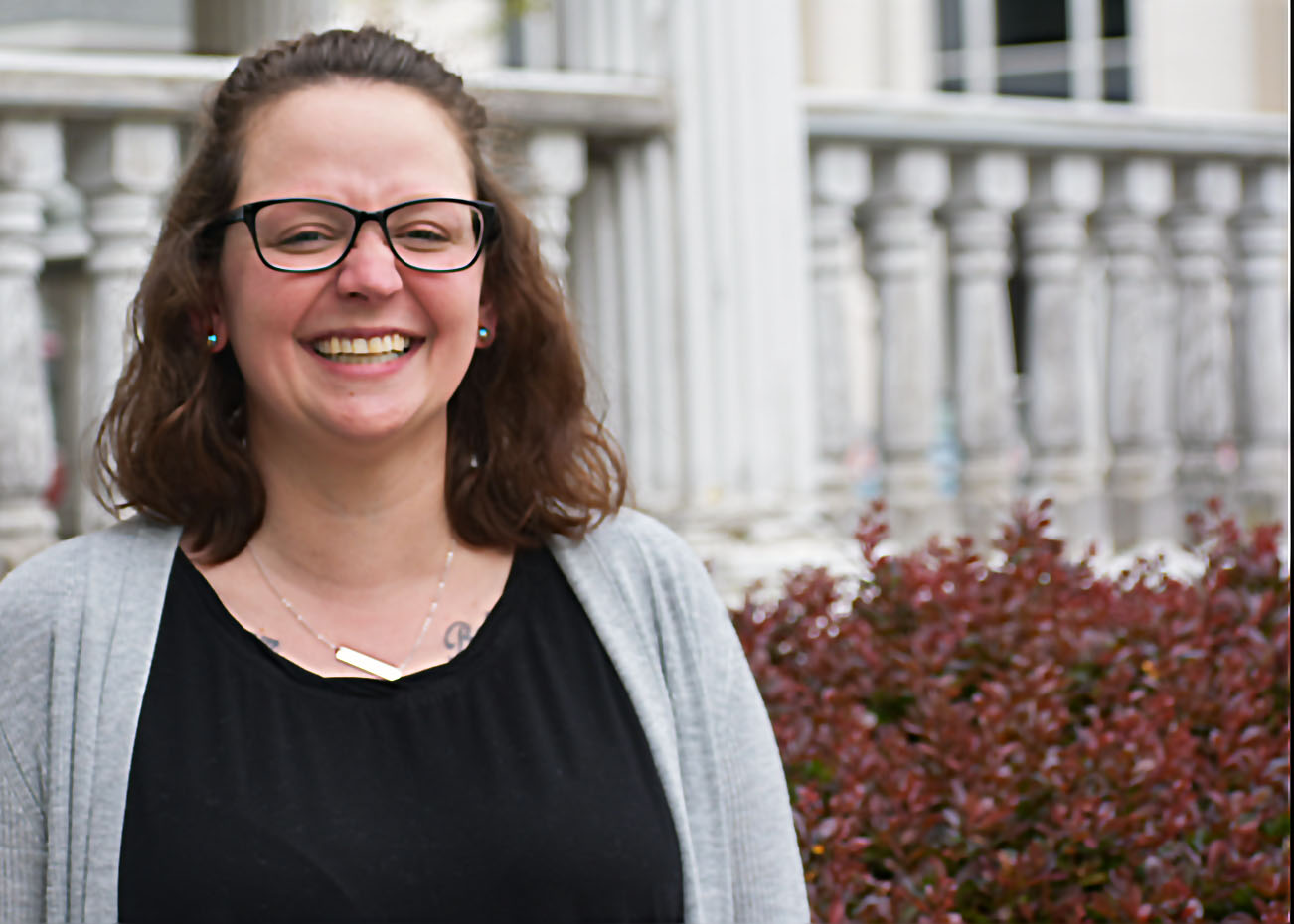Anne Mahar, Safe & Just Michigan’s research specialist, joined our team in 2019. She returned to Michigan, where she grew up, after teaching criminal justice at Arcadia University in Pennsylvania.
Anne said she went into teaching because she wants to bring about change in criminal justice reform — and she’s joining Safe & Just Michigan’s team because she sees policy change as the quickest way to bring about that change.
“I always wanted to be a part of making a change,” Anne said. “I enjoyed teaching, but I was looking for something more hands-on. I want to help people, but I had to navigate how to do best do that.”
She became passionate about criminal justice reform because of a college internship in Washtenaw County’s Prisoner Re-Entry Initiative office. Her job was to bring together formerly incarcerated people who had been recently released with law enforcement officers. Sometimes, the meetings went well. Other times — they didn’t. After those meetings, she listened to the people who had been incarcerated as they told her about their struggles to find jobs and housing and about their experiences with the justice system.
The experience led her to earn a bachelor’s degree in criminal justice and then a master’s degree in criminal justice and criminology from Eastern Michigan University. She went on to obtain her doctorate in criminology and criminal justice from Old Dominion University in Virginia, then got a job as an assistant professor at Arcadia. The classes she taught included crime and punishment, community corrections and research methods, while her research focused on communities and crime, corrections and prisoner reentry.
She said getting her students involved in the Inside-Out Prison Exchange Program was one of the most meaningful experiences for her — as well as for her students and the incarcerated people they learned alongside. Inside Out is a unique program that brings college students into jails and prisons, where they hold a series of classes and discussions with incarcerated people over a series of weeks. Over that time, collegial relationships are formed and viewpoints are challenged and changed.
“On the first day of the program, many of the students were terrified. Some of them had really hardline ideas about crime and punishment,” Anne said. “But it’s a lot harder to be a hardliner once you get to know people face-to-face. I got to see many ‘a-ha’ moments from my students when they realized that people who are incarcerated are just like anyone else — we want the same things from life, we even like to talk about the same TV shows.”
Her students participated in the program with people who were incarcerated in a county jail. During the course of the program, some of their classmates suddenly left when they were handed 20-year sentences. It was a heartbreaking fact of life that changed several of her students’ points of view on the criminal justice system.
She has hope that those students will go on to affect change in the criminal justice system. But Anne herself wants to quicken that change, and she believes change will come fastest when laws are written to address problems in the criminal justice system. It’s why she came to Safe & Just Michigan.
Asked what she’d like to see improved in Michigan’s criminal justice system, Anne had a list of recommendations, including addressing sentencing disparities between different groups, such as race and gender; improving the public defender system; and changing Michigan’s Truth in Sentencing law.
“Michigan’s Truth in Sentencing law is 100 percent,” meaning that a person must serve the full amount of their minimum sentence before they can be considered for parole. “That’s pretty extreme. In most states, it’s 85 percent.”
Anne is grateful for the opportunity to work on criminal justice reform in her home state.
“I feel I should be using my skills in research and statistics to make a change for the prison population,” she said. “That has been my goal all along.”

